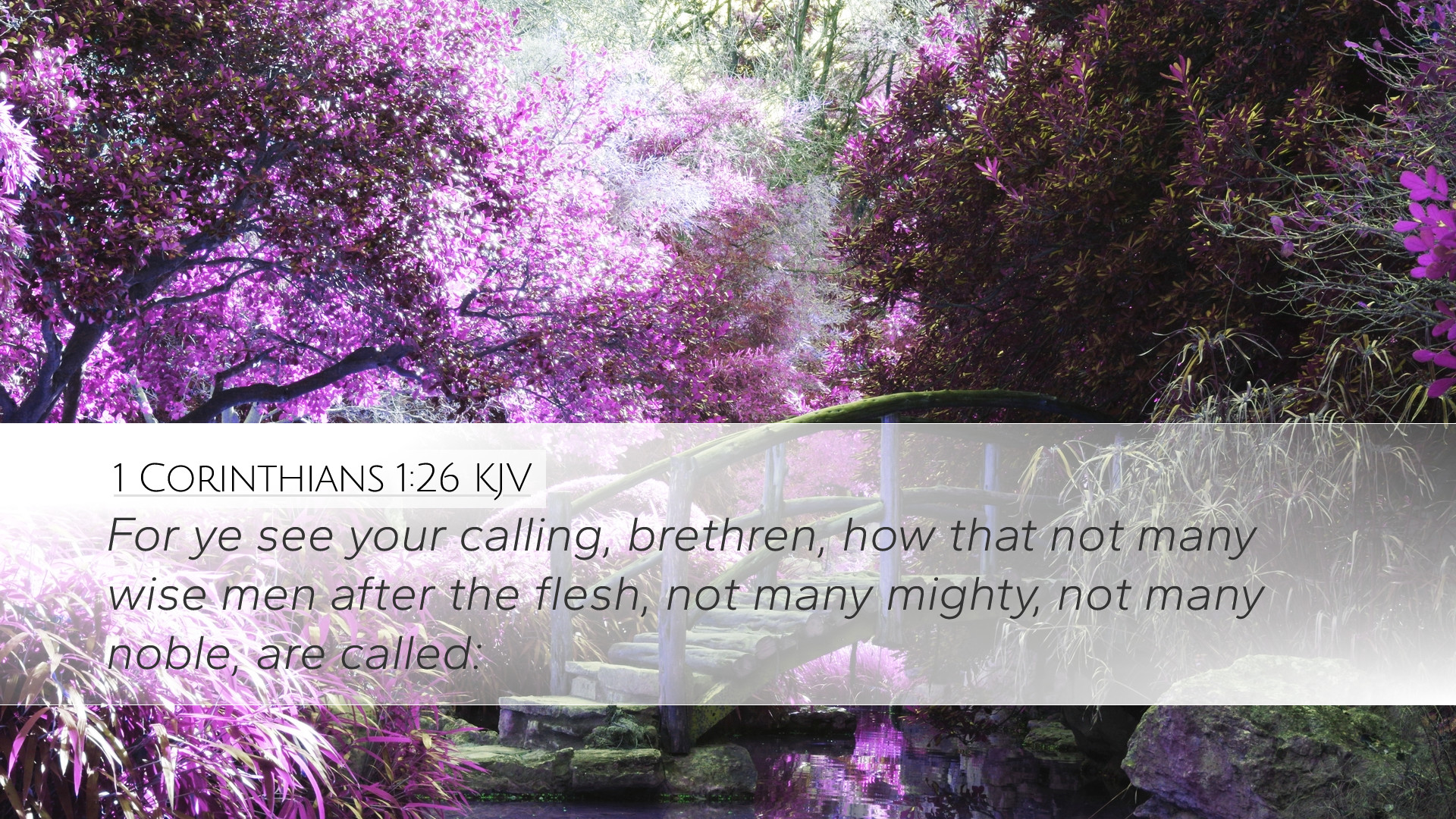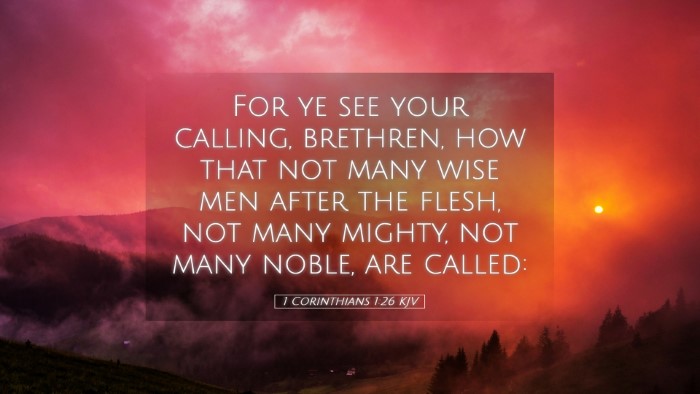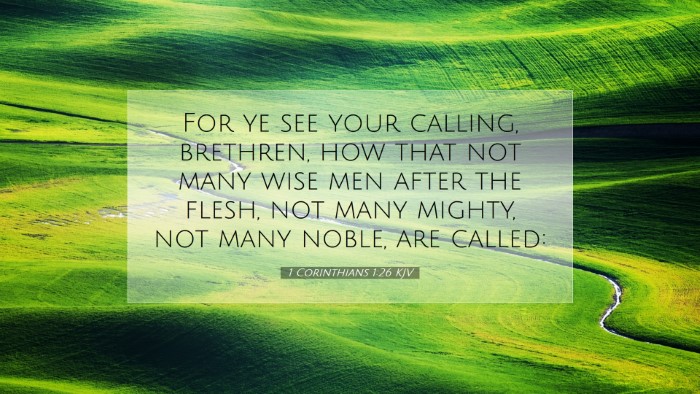Commentary on 1 Corinthians 1:26
Bible Verse: "For ye see your calling, brethren, how that not many wise men after the flesh, not many mighty, not many noble, are called." (1 Corinthians 1:26)
This verse serves as a powerful reminder of God's choice in the calling of believers. It emphasizes how God often confounds human expectations and societal norms in choosing those who will inherit His kingdom.
Contextual Background
The Corinthian church comprised a diverse group with varying social standings, beliefs, and cultural backgrounds. Paul, the Apostle, addresses issues of division and pride among these believers, underscoring that their faith does not stem from human wisdom or status.
Divine Selection
Paul points out that God’s calling does not typically align with human perceptions of wisdom, power, or nobility. Matthew Henry elaborates, emphasizing that God's wisdom is often revealed in a manner that is contrary to worldly principles, challenging the notion that greatness and significance come from status.
Insights from Commentators
-
Matthew Henry:
Henry outlines the message that God's choice operates through a divine sense rather than human standards. He notes that it is often the foolish and weak according to the world who are chosen, as these individuals demonstrate that it is through God's strength and wisdom that they are redeemed, not their own.
-
Albert Barnes:
Barnes further expounds by indicating that this clause serves to put the Corinthian believers in remembrance of their humble beginnings and the grace that called them. He argues that those who are lowly in the world are often used to confound the wise, illustrating God's glory and purpose through them.
-
Adam Clarke:
Clarke emphasizes the sociocultural implications of the verse, asserting that the truly wise, mighty, and noble of the world — those who are often in positions of power — frequently resist the gospel. Clarke highlights how the gospel often appeals to those on the margins of society who recognize their need for divine intervention.
Theological Implications
This verse illustrates a profound theological truth about God's grace and the nature of salvation. It challenges the pride of both the intellectual elite and the powerful, suggesting that in God’s kingdom, human distinctions fade.
Grace Over Merit
Drawing from the insights of the aforementioned commentators, it becomes clear that 1 Corinthians 1:26 affirms the doctrine of grace over merit. The text highlights that it is not through human effort or societal status that one is saved, but through God’s sovereign choice alone.
Encouragement for the Underprivileged
This verse offers hope to those who feel marginalized or insignificant — a promise that they are equally valued and called by God. The church serves as a microcosm of God’s diverse creation, wherein all believeth, regardless of their background, have equal access to His grace.
Applications for Ministry
For pastors and theologians, this scripture serves as a powerful foundation for ministry. Understanding the heart of God in calling the lowly and overlooked can shape outreach strategies and ecclesial practices, emphasizing inclusivity and the radical love of Christ.
Preaching the Gospel
When preaching the gospel, leaders should highlight the accessibility of God’s grace. This can be particularly meaningful in communities where people may feel disenfranchised or unworthy. Maintaining a focus on God’s love for the least among us reflects the core values of the Christian faith.
Building Community
Churches can draw lessons from this verse when fostering community. Celebrating diversity and encouraging participation from all members — particularly those who may be overlooked by society — can cultivate a richer, more vibrant church culture.
Conclusion
1 Corinthians 1:26 calls for a reflection on how we, as believers, perceive our worth and calling. It challenges societal norms and reaffirms the amazing grace extended to all. It serves as a significant reminder that God's ways are not our ways, and His choice transcends all earthly wisdom.
As we engage with this scripture, may we embody the humility and grace it encapsulates, remembering that our calling is rooted not in our achievements, but in God's divine providence and love.


